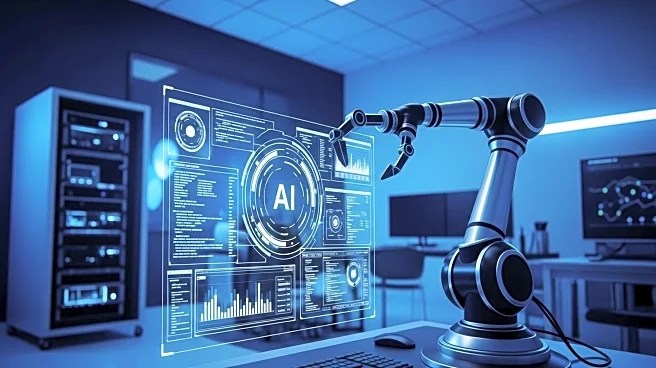What is the story about?
What's Happening?
Klarna CEO Sebastian Siemiatkowski has been using AI tools to generate code for prototype features, which he then presents to his engineering team for review and implementation. Despite having no prior coding experience, Siemiatkowski uses the AI-powered code editor Cursor to create these prototypes, taking approximately 20 minutes to develop each one. He acknowledges that while AI can make his ideas seem feasible, it often leads to additional work for his engineers, who must correct and refine the AI-generated code. This approach follows a previous attempt by Siemiatkowski to replace a significant portion of Klarna's workforce with AI, which ultimately required rehiring human staff due to the limitations of AI in customer support roles.
Why It's Important?
The CEO's reliance on AI-generated code highlights the ongoing debate about the role of AI in the workplace. While AI can streamline certain tasks, it often requires human intervention to ensure accuracy and functionality. This situation underscores the challenges companies face when integrating AI into their operations, as it can lead to increased workloads for employees tasked with correcting AI errors. The broader implications for the tech industry include potential shifts in job roles and the need for skilled workers to manage AI outputs effectively. This development also raises questions about the balance between innovation and practicality in corporate strategies.
What's Next?
As Klarna continues to explore AI applications, the company may need to reassess its approach to integrating AI-generated code into its operations. This could involve investing in training for employees to better manage AI tools or reevaluating the extent to which AI should be used in coding processes. Additionally, the tech industry may see increased demand for professionals skilled in AI oversight and error correction, as companies seek to optimize the use of AI while minimizing disruptions to workflow.
Beyond the Headlines
The ethical considerations of using AI in coding and other creative processes are becoming increasingly relevant. As AI tools become more prevalent, companies must navigate the potential for over-reliance on technology that may not fully understand complex human tasks. This situation at Klarna serves as a case study for the importance of maintaining human oversight in AI-driven projects, ensuring that technology complements rather than replaces human expertise.














